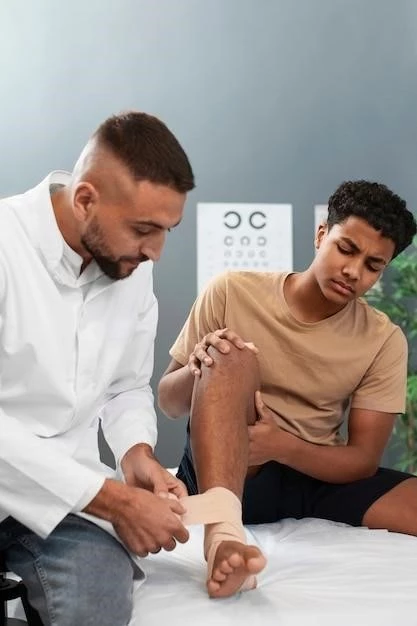Uses of Topical Testosterone
Topical testosterone is commonly used to treat low testosterone levels in men. Consult your healthcare provider for proper guidance.
Overview
Topical testosterone is a medication applied to the skin to help increase testosterone levels. It is commonly used to treat conditions such as low testosterone in men. This method allows for easy absorption into the bloodstream and can be an effective treatment option. It is important to follow your healthcare provider’s instructions carefully when using topical testosterone to ensure safety and effectiveness.
Application
When applying topical testosterone, ensure the skin is clean and dry. Follow the specific instructions provided with the medication. Avoid applying to broken, irritated, or damaged skin. Rotate application sites to prevent skin irritation. Wash hands thoroughly after application and avoid contact with others until the gel has dried to prevent transfer. If you experience any adverse reactions or have questions about application, consult your healthcare provider promptly.

Common Side Effects of Testosterone Gel
Common side effects of testosterone gel may include skin irritation, acne, and fluid retention. Contact your healthcare provider if these persist.
Understanding Side Effects
It’s essential to be aware of potential side effects of testosterone gel, including skin reactions, mood changes, and changes in libido. Monitoring for these effects is crucial for your overall well-being. If you experience any concerning side effects, contact your healthcare provider for guidance and appropriate management.
Management
Managing side effects of testosterone gel involves communicating any concerns with your healthcare provider promptly. They may adjust your dosage, recommend different application techniques, or suggest alternative treatment options; It’s essential to follow their guidance closely to ensure the best outcomes and minimize any adverse effects. Always prioritize open communication with your healthcare team when managing side effects.
Risks of Testosterone Therapy
Testosterone therapy may carry risks such as cardiovascular issues and potential prostate complications. Regular monitoring is crucial. Consult your healthcare provider.
Potential Risks
Potential risks of testosterone therapy include an increased risk of blood clots, heart attack, stroke, and potential worsening of sleep apnea. It’s important to discuss these risks with your healthcare provider before starting therapy and undergo regular monitoring to ensure early detection of any potential complications. Be vigilant about any symptoms and communicate openly with your healthcare team.
Monitoring
Regular monitoring during testosterone therapy is essential to assess your response and detect any potential complications early. Your healthcare provider may request periodic blood tests to evaluate hormone levels and check for any adverse effects on your health. Be proactive in attending these appointments and communicating any concerns or changes in your condition to ensure the therapy’s effectiveness and safety.
Dosage Information for Testosterone Topical Solution
Follow the prescribed dosage of testosterone topical solution carefully as instructed by your healthcare provider for optimal results and safety.
Recommended Dosage
The recommended dosage of testosterone topical solution varies based on individual needs and the specific product prescribed. It’s crucial to adhere strictly to the dosage instructions provided by your healthcare provider to achieve the intended therapeutic effects while minimizing the risk of side effects. Do not alter your dosage without consulting your healthcare team, and report any concerns or questions regarding your dosage promptly for appropriate guidance.
Administration
When administering testosterone topical solution, ensure that you apply it to clean, dry skin as directed by your healthcare provider. Follow the specific application instructions provided with the medication meticulously to ensure proper absorption and optimal effectiveness. It’s crucial to rotate application sites to prevent skin irritation and to wash your hands thoroughly after each application. Any concerns about the administration process should be discussed with your healthcare provider promptly for clarification and guidance.
Treatment of Low Testosterone with Testosterone Topical Gel
Discuss with your healthcare provider the use of testosterone topical gel as a treatment for low testosterone levels and follow their guidance closely.
Diagnosis and Need for Treatment
Proper diagnosis of low testosterone levels is crucial before initiating treatment with testosterone topical gel. Symptoms such as fatigue, reduced libido, and mood changes may indicate low testosterone, but confirmatory blood tests are necessary. Consult your healthcare provider to discuss your symptoms, undergo appropriate testing, and determine if testosterone topical gel is the right treatment for you. It’s essential to follow their recommendations to address any underlying issues effectively.
Effectiveness
The effectiveness of testosterone topical gel in treating low testosterone depends on adherence to the prescribed regimen and regular monitoring of hormone levels. Consistent application following healthcare provider instructions is crucial for optimal results. Discuss any concerns or changes in symptoms with your provider to ensure the treatment’s effectiveness and make any necessary adjustments. Notify your healthcare team promptly of any unexpected outcomes or side effects while using testosterone topical gel for low testosterone management.
Testosterone Topical⁚ Warnings and Precautions
Adhere to all prescribed warnings and precautions when using testosterone topical products. Consult your healthcare provider for personalized guidance.
Important Warnings
Important warnings for testosterone topical products include avoiding contact with children or pets after application, taking precautions to prevent accidental exposure; Keep the medication out of reach, and in case of accidental exposure, seek medical advice. Additionally, inform healthcare providers of any existing medical conditions or medications to prevent potential interactions or adverse effects. Following these warnings diligently is essential for your safety and the safety of those around you.
Special Populations
Special populations, such as pregnant or breastfeeding individuals, should exercise caution with testosterone topical products due to potential risks to the fetus or infant. Older adults and those with certain medical conditions may require dosage adjustments or closer monitoring when using these products. Prioritize open communication with your healthcare provider to determine the best course of action concerning testosterone therapy. It’s crucial to consider individual circumstances and potential contraindications specific to special populations to ensure safe and effective treatment outcomes.
